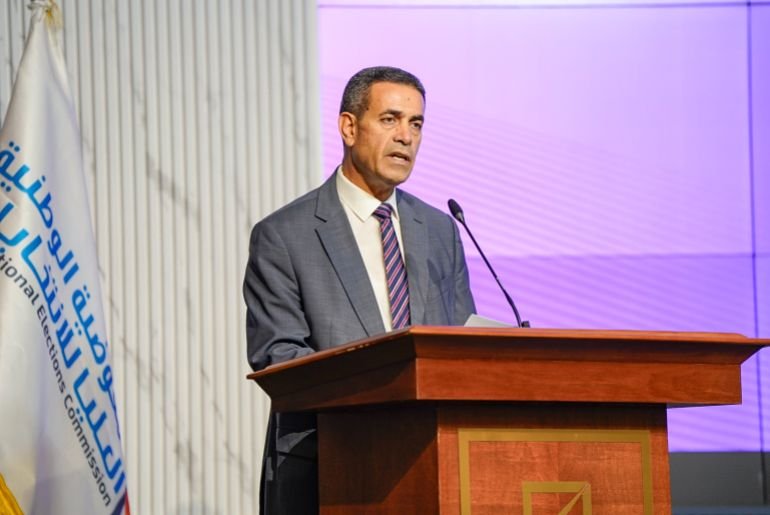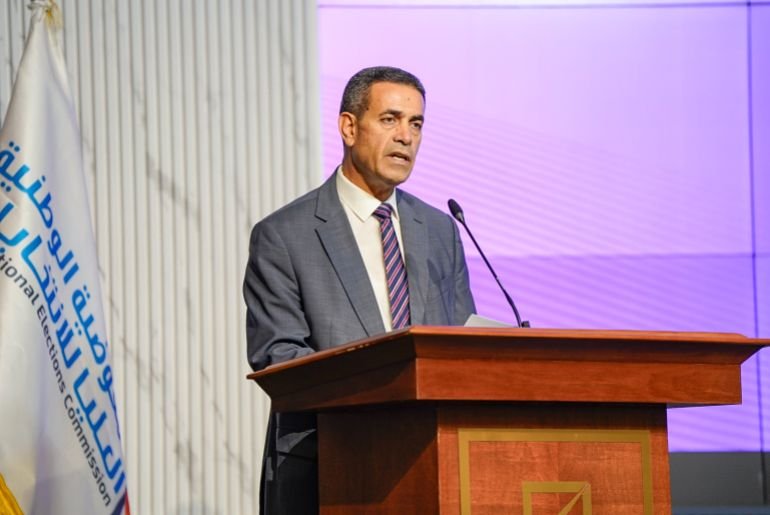Al -jazeera net correspondent
The registration doors for the second stage of the municipal council elections were closed Libya On April 16, with shy figures which indicate a state of reluctance which affected the Libyan street concerning the electoral process.
Despite the extension of the Supreme National Electoral Commission, the registration period 3 consecutive times to encourage as many as possible to register in the electoral register, the figures remained lower than the expected level, according to the president of the Imad Al -Sayeh commission.
In the latest statistics published by the Commission, the number of declarants reached around 5608 thousand voters and voters in 62 municipalities, against more than 7.4 million inhabitants, according to the WORLD MITRE website.
This recording stage included major municipal elections such as TripoliBenghazi, Tobruk, Al -kafra, andSebhaGood, andI walkedAnd it came after a participation rate relatively high in the first stage last November, which reached 74%.

Silent withdrawal
Addressing Al -jazeera Net, the civil and volunteer activist at the electoral commission, Muhammad al -Qiwari, considered that the experience of the municipal elections revealed the decline of the confidence of the Libyans in the polls because of the failure of the previous electoral experiences “taxation of this abstinence gives way to options that do not represent them.
In turn, the civil activist Retaj Khalifa – who is also voluntary of the electoral commission – attributes the low request for registration for the municipal elections to the lack of conscience of the importance of this right.
For his part, the candidate in the elections of the municipal council in the city Benghazi Al -zubair al -Baraki in Al -jazeera net, “we demanded that as candidates and those interested in the general commission, the voters’ file is separated from the electoral process and is always available, so that people can register at any time, especially after seeing the programs and visions of candidates.”
He continued: “But the commission did not respond and opened the registration for a very short period, which made many citizens refrain because they do not know the candidates, nor their programs.”
With regard to the candidate for the municipality of Tripoli, the center, Insharah bin Taboun, she assured Al -jazeera net, that the reasons for the reluctance of electoral rights are the result of accumulations of years of political failure, noting that successive governments have devoted a determined reality characterized by corruption, exclusion and taxation of factual authority.

Heavy participation
As for the civil activist Salem al -Harik, who directs the initiative to educate citizens in Sirte on electoral participation, he compared the volume of registration between the cities of Tripoli and Benghazi and Saint as follows:
- The capital, Tripoli, west of Libya, with a population of more than 1.2 million people, recorded 14,000 voters and voters in the center of Tripoli, the center only.
- The number of people enrolled in the city of Benghazi in eastern Libya, which has around 845,000 inhabitants, reached 31 thousand recorded in the center of Benghazi.
- The city of Sirte, in northern Libya, reached 450 km from the capital, Tripoli, and its population does not exceed 126 thousand people, a remarkable registration request of 19.3 thousand voters and voters.
And on the role of the parts in the Political Process and supporting the Municipal Elections, the Head of the Merit Party and the Founding Member of the Nation’s Bloc for All, Abdul Latif Sazib to Al -jazeera Net, Explained that reasons for the reluctance are due to the Executive Division Between the Two Governments Which Prevents Access to Entitlement in its most understanding concept, as some municipalities follow the libyan government while ower follow the government of the unit.
The electoral process looks at many obstacles, the most important of which is the atrophy of confidence and the lack of conscience. The member of the Abdul Hakim Al -Shahab commission indicated that there were challenges facing their work, the most important of which are:
- The lack of support from the real government.
- The lack of funding, because the electoral commission has only granted half of the budget, with promises to spend the remaining party when the electoral process is launched.
- “Infusion” of media ministries, culture and local governance on awareness of the importance of elections.
He stressed that the electoral process is not the responsibility of the Commission alone, but rather requires an integrated national partnership.
Job of trust
For his part, the professor of political science at the University of Benghazi, Abeer Manetah, explained to Al -jazeera Net that the reluctance to register in the municipal elections is caused by the political context which led to the living conditions of crisis and a shabby social which led to a lack of confidence.
In addition, the specializations granted to municipal councils were not attached to financial powers or real resources, not to mention the deterioration of the economic situation which prompted citizens to re-prior their priorities; As to ensure a livelihood and try to follow the rapid rise in prices occupy the foreground, while the involvement in the political process is considered a luxury which does not in accordance with the necessities of the daily life of citizens.
While the researcher specializes in public policies and governance, Hanin Bouchoucha, told Al -jazeera net that electoral reluctance warns a crisis of confidence between citizen and state institutions, and it can be considered as a silent expression of the lack of confidence in the feasibility of political participation concerning his previous causes.
Faced with this reluctance, activists and candidates for determining the vote of participation, because the civil activist Muhammad al -quwairi stressed that the restoration of confidence in the electoral path requires a sincere discourse of awareness that shows that sound is a tool of change, and the follow -up of society is a guarantee of democratic transformation.

